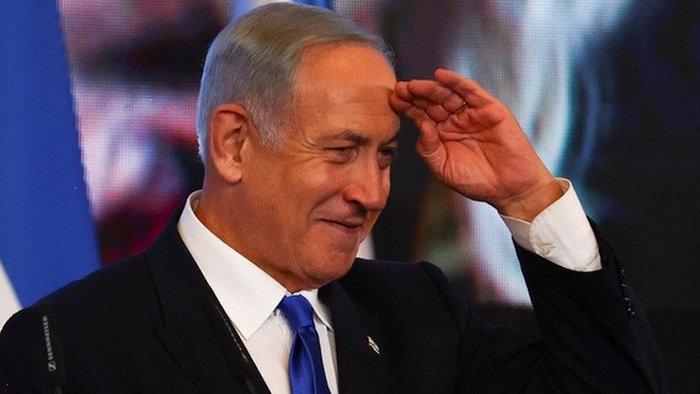Israel's Netanyahu faces uphill battle as voters return to polls
- Published
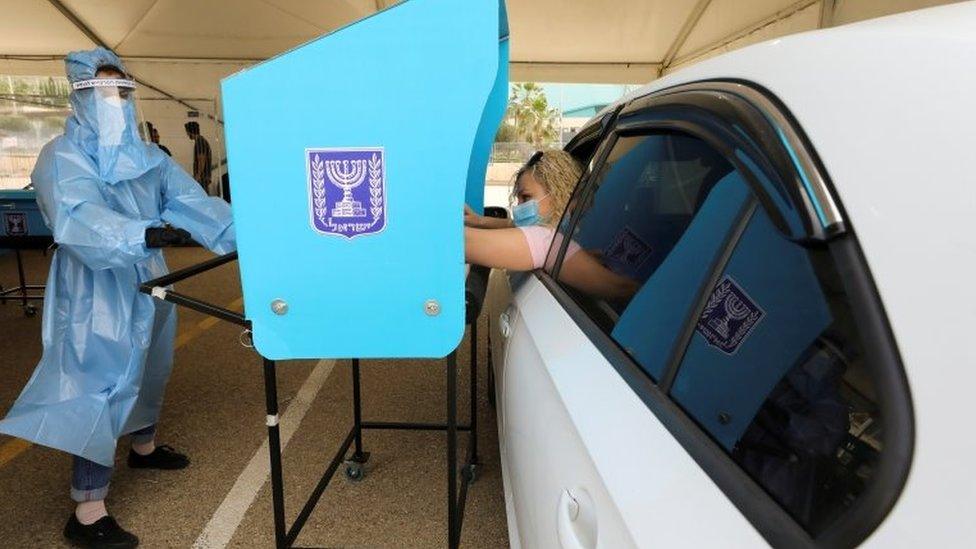
Israeli voters infected with Covid-19 can go to drive-through polling stations
Israelis have voted in a fourth general election in two years, in what is widely seen as a referendum on Prime Minister Benjamin Netanyahu.
The previous three elections - a record cycle - ended inconclusively. A unity government, which was formed to break the impasse, collapsed in December.
Polls ahead of the latest elections pointed towards another stalemate.
They were held as Israel emerges from lockdown and two weeks before Mr Netanyahu's corruption trial resumes.
The prime minister is fighting charges of bribery, fraud and breach of trust. He denies the accusations, calling them politically motivated.
Mr Netanyahu encouraged all Israelis to go out and vote as he cast his ballot in Jerusalem on Tuesday morning.
"We have had a year of sacrifice, unity, and now we are leaving this coronavirus in the past together," he said.
But by 18:00 (16:00 GMT) turnout stood at 51.5% - down from 56.3% at the same time during the last election in March 2020.
Later, a rocket fired by Palestinian militants in the Gaza Strip landed in an open field near Beersheba, a short while after Mr Netanyahu visited the southern city to rally his supporters.
There were no immediate reports of any casualties from the attack, and it was not clear whether the prime minister was in Beersheba when it happened. His Likud party said he had already left the city.
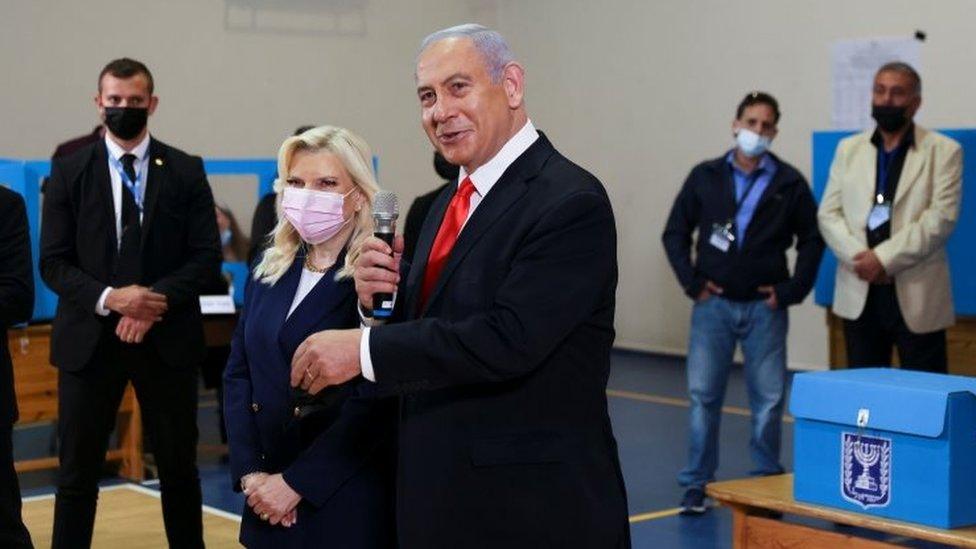
Support for Mr Netanyahu remains strong within the Likud party
Since the last election, Israel has gone through three lockdowns to try to curb the spread of coronavirus.
Mr Netanyahu's opponents have accused him of mishandling the crisis. However, the economy has largely reopened in recent weeks, infection rates have plummeted, and the prime minister has touted Israel's rapid inoculation programme as a major achievement.
At its peak, Israel was one of the worst-hit countries in the world, but more than half the population has now received at least one vaccination dose.
Aside from the pandemic, opposition parties have focused on Mr Netanyahu's political dominance as Israel's longest-serving leader, arguing that the country is overdue for change.


Israelis have had a lot of experience of elections in the past two years, but there are some ways in which this one looks different.
Those testing positive for Covid-19 can go to drive-through polling stations, and the seriously ill can vote in hospitals. There are also ballot boxes at the airport for returning citizens going into self-isolation at home.
In his campaign, Mr Netanyahu takes credit for Israel's world-leading vaccination rollout. On TikTok, he tells people: "Go get vaccinated - we have enough for everyone."
Meanwhile, one of his rivals, Yair Lapid - who wants to knock him out of office - shows off his boxing skills to the Rocky soundtrack.
To many Israelis, the election cycle has gone on too long. "I just want an end to the chaos," a teacher, Ami, tells me in Holon.
But analysts warn that with the country split into pro- and anti-Netanyahu camps, this vote might not end the political stalemate and a fifth election is still possible.

The 71-year-old prime minister has been in power continuously since 2009, having served an earlier three-year term in the late 1990s.
His Likud party is expected to win most seats but fall far short of the 61 needed to be able to form a government without the support of other parties.
Israel's electoral system has resulted in coalitions or, more rarely, unity governments since the state was founded in 1948.
However, polls suggested that even a bloc of right-wing parties willing to back the prime minister could struggle to pass the numerical threshold to enable him to stay in office.
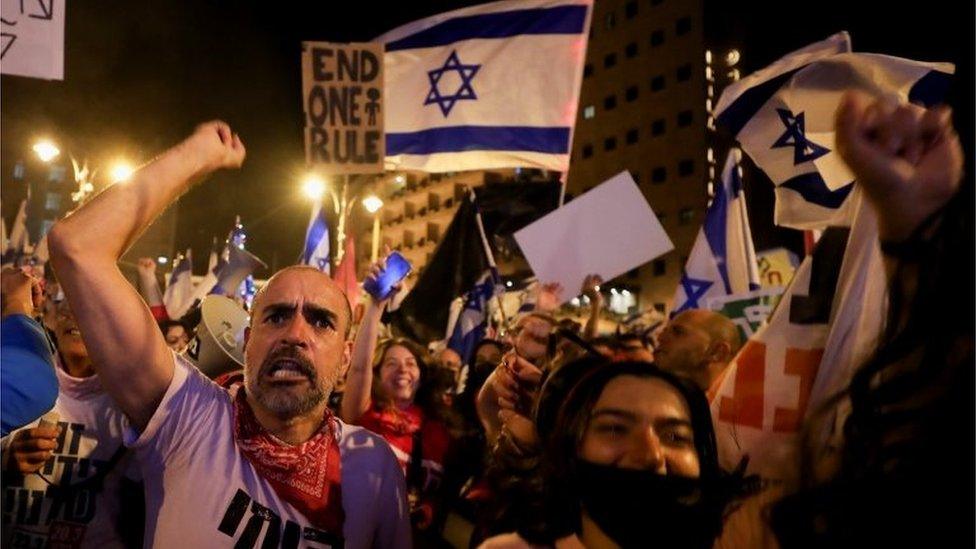
Mass demonstrations calling on Mr Netanyahu to resign have been held almost weekly
Anti-Netanyahu parties are expected to outperform the pro-Netanyahu bloc. But analysts say the extent of political differences between them mean that even if they win 61 or more seats, they are unlikely to be able to put a government together.
If no bloc can achieve a workable majority, a fifth round of elections could be called.
Israel has been blighted by political paralysis since the April 2019 election, when Likud won the most votes but failed to form a governing coalition. Although the party stands strongly behind Mr Netanyahu, mass demonstrations have been held weekly outside his Jerusalem residence, apart from during periods of tight lockdown.
Tens of thousands of opponents took part in the latest such rally on Saturday night, in one of the biggest gatherings of its kind since the demonstrations began.
- Published22 March 2021
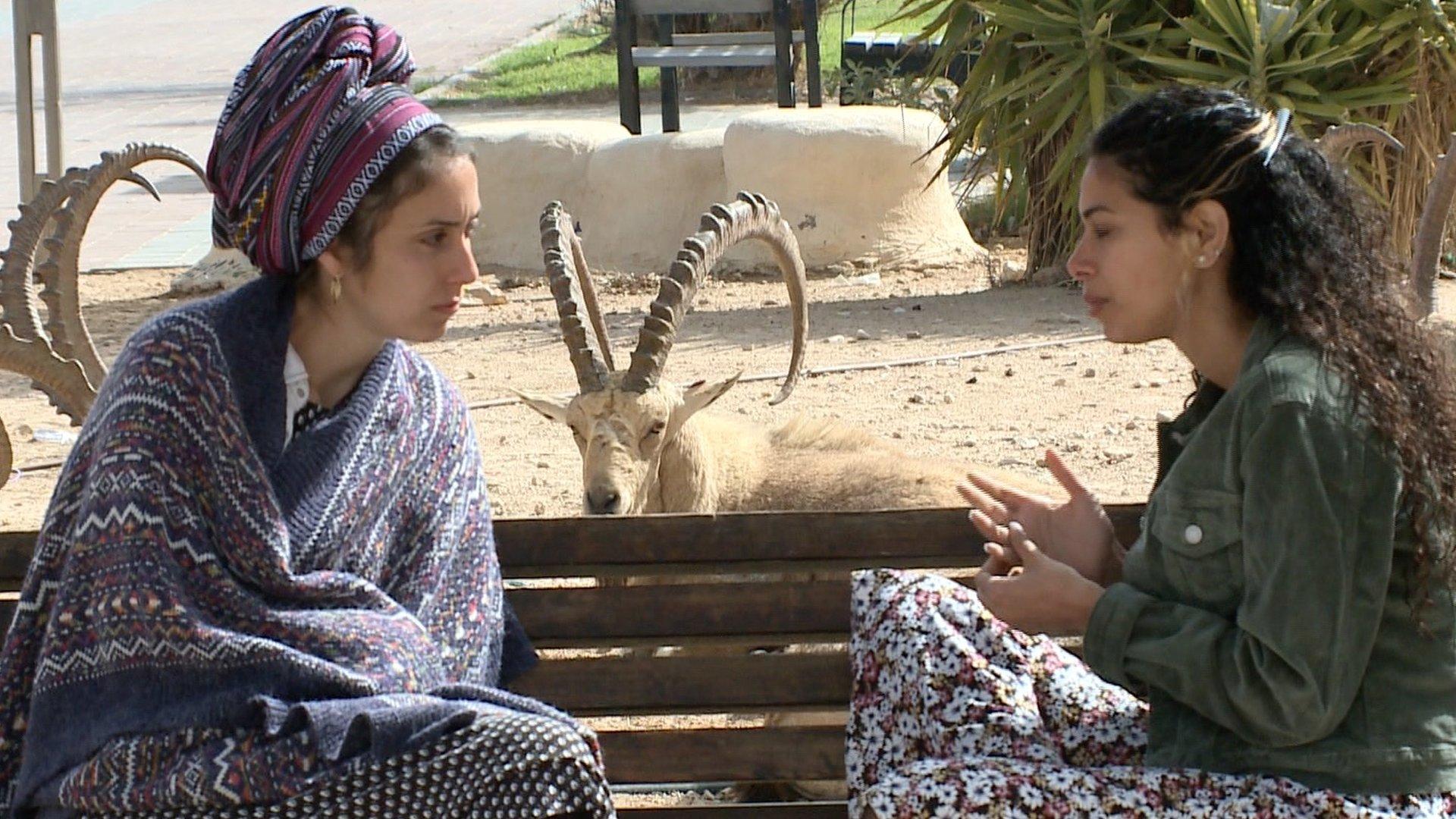
- Published21 November 2024
